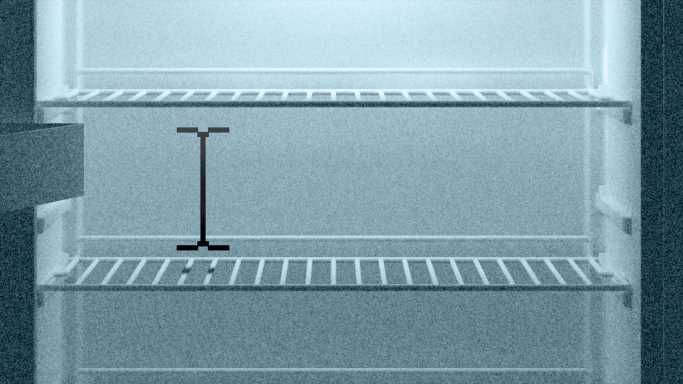Illustration: Brendan Lynch/Axios
Machine learning techniques can be successfully deployed to better identify food insecurity outbreaks across the world long before they take place, according to a new study.
Why it matters: The timely disbursement of humanitarian aid can be a matter of life or death during a food crisis. How we gather information and when we respond can make all the difference.
What they found: A new study in Science Advances, the journal of the American Association for the Advancement of Science, used deep learning to extract relevant text from more than 11 million news articles focused on food-insecure countries and published between 1980 and 2020.
- The study analyzed how journalists reported about food insecurity and causes associated with it.
- Researchers found that between 2009 and 2020, and across 21 countries, news indicators "substantially" improved the Integrated Phase Classification (IPC) predictions of food insecurity, which are available at a district level — or particular area of a country — up to 12 months ahead of time.
- The end result is an early warning system that mines news coverage to predict incoming food crisis outbreaks more accurately than the traditional risk systems currently used across 37 food-insecure countries in Africa, Asia and Latin America.
What they're saying: Samuel Fraiberger, a data scientist at the World Bank Group and co-author of the paper, tells Axios that traditional food security models rely on risk measures that are "often delayed, outdated or incomplete."
- "Historically, when you look at the data, the forecasts made by these experts, they are quite imprecise," says Fraiberger.
- He notes that these models tend to rely on on-the-ground measurements or indexes of food prices, which results in gaps for poorer countries where the data isn't collected or is missing due to lack of resources, conflict or climate shocks.
- In one instance, their study identifies how news terms connected to a 2016 pest infestation that spread across 20 African countries, decimating crops, spiked in the most exposed districts five months before the IPC deemed it a crisis.
Between the lines: This could have "profound implications" on how humanitarian aid gets allocated to regions to help prevent a looming food crisis, according to Fraiberger, stressing that "even weeks can make a huge difference."
Zoom out: Timeliness is at the core of humanitarian funding effectiveness, preserving lives and livelihoods, as well as maximizing impact, per the UN Office for the Coordination of Humanitarian Affairs.
- And a 2022 analysis published in the journal BMJ Global Health designates the use of data for "evidence-based planning and decision-making" as "necessary for the success of interventions" in humanitarian crises.
State of play: As climate change drives an increasing risk of disaster events worldwide, which often leads to issues with food availability, access, utilization and stability, disaster response organizations like NGO Team Rubicon are adamant that informed preparedness can be life-saving.
- "When a disaster strikes, and some of those things that people rely on is the connectors between water and food and where they are, it begins to create gaps in the ability to solve that food chain," Art delaCruz, CEO of Team Rubicon, tells Axios.
- The more time and resources a community has to develop a resilience plan, the better equipped they are to respond to the "cascading effects" of unforeseen hazards, says delaCruz.
Zoom in: SVB has been finding it harder to earn money over the last year because a key source of cheap deposits — the venture capital boom — has slowed down, just as losses in its investment portfolios have risen, Axios' Matt Phillips writes.
- Many of SVB’s depositors are venture capital-funded tech companies. The brutal sell-off in tech stocks, and downturn in startup valuations, has slowed the flow of venture capital.
The bottom line: "Hope is a terrible game plan when it comes to disasters," delaCruz said.
Source: Read Full Article
-
Trump fans gather outside Trump Tower on the eve of his rumored arrest
-
Family: Police got 911 call an hour before Colorado Springs man was killed
-
China shows dramatic video of fighter jet blasting off aircraft carriers as Pelosi’s plane just ONE HOUR from Taiwan | The Sun
-
Turkish MP hospitalised after parliament descends into vicious brawl
-
Trump set to travel to New York for booking, arraignment


